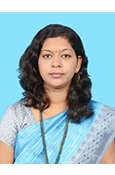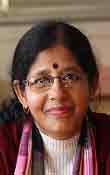Sanskrit, the mother of all languages
Sanskrit, the mother of all languages
Mr. Nataraja has a Masters degree in Sanskrit and a vast experience of teaching the language for high school and PU students for over 25 years. He currently teaches Sanskrit to high school students of Sri Kumaran Children's Home - CBSE.
 1. As a National Award winning teacher, what do you think has helped you reach where you have?
1. As a National Award winning teacher, what do you think has helped you reach where you have?The very first reason was the environment I was born in. I hail from Mattur, the much acclaimed Sanskrit village in Shimoga, Karnataka. I was born into a family of Sanskrit and Vedic scholars.
The environment and being amidst the vedic scholars developed interest in me to pursue Sanskrit. I followed the instructions of my teachers. My parents and friends helped me a lot in this direction.
Principals of the previous institutions and the current institution where I work, have guided me in the right path. My colleagues have helped me too. I have reached this stage because of all their support.
2. How easy or difficult is it to teach Sanskrit in school these days? Please comment.
Now-a-days, it is very easy to teach Sanskrit, because in most of the schools, advanced teaching aids are being used. Even in rural areas, it is becoming easy to teach through good teaching aids. Classes are equipped with speakers, interactive boards, projectors, online video streaming and other such educational software. These aids help in teaching Sanskrit, making the students interested in class.
3. Why do you think children these days are choosing foreign languages over Sanskrit? What can be done to change the opinion of Sanskrit as a language to learn?
I think it's wrongly assumed that learning foreign languages is useful for children. As an Indian, one should know and learn Sanskrit, as it is the mother of all languages. This language has a long tradition. For thousands of years, the culture and tradition of the country has been passed on from generation to generation through Sanskrit.
Sanskrit can be made an interesting language to learn, by telling students about the uses it has. It is used in computers too. The NASA website speaks of Mission Sanskrit and describes it as the best language for computers. Scientists believe that Sanskrit can help in speech therapy, along with helping in mathematics and science. They also believe that learning Sanskrit improves concentration.
Students can be introduced to Sanskrit at the montessori level where they can be taught Sanskrit rhymes, stories and can be exposed to Sanskrit shlokas. This exposure at a young age will not only help them get familiar with the language, but also to learn and understand it better.

4. Sanskrit is considered to be a dead language. What is your take on it?
According to me, Sanskrit is not a dead language. A dead language is a language which is no longer in everyday spoken use. Sanskrit cannot be considered 'dead' as the village of Mattur, on the banks of River Tunga, has almost 5000 residents speaking Sanskrit as their regional language.
Many institutions have been set up by the Central Government under the HRD department to promote the language. With so much of dynamics in Sanskrit, it cannot be considered as a dead language.
5. Do you think Sanskrit is losing its place in the world?
I strongly believe that Sanskrit can never lose its place. It is the mother of all languages. Sanskrit depicts the culture and age old traditions of our country. I think, in the present world, it has a very important role in maintaining peace and harmony. Mahatma Gandhi once quoted, "Without the study of Sanskrit, one cannot become a true Indian and a true learned man."
As mentioned earlier, scientists believe that Sanskrit has many uses and the language will be developed further.
People in the west are showing interest and learning Sanskrit and beginning to understand it. Max Muller, a German scholar who studied Sanskrit philosophy is believed to have said that Sanskrit was the greatest of all languages in the world.
6. How can Sanskrit be made interesting for students? What do you do to make Sanskrit interesting for your students?
Sanskrit can be made interesting in many ways. In classrooms, interactive boards can be used. Conversing in Sanskrit, telling students stories in Sanskrit, reading Sanskrit comics etc., can be an interesting and a fun way to learn the language.
To popularise Sanskrit as a spoken language, I have conducted several workshops for various levels of school children, and conducted several competitions to improve their Sanskrit skills. I have also been instrumental in enabling my students to recite the 'Bhagavad Gita' and 'Vishnu Sahasranama' stotram in school.





















